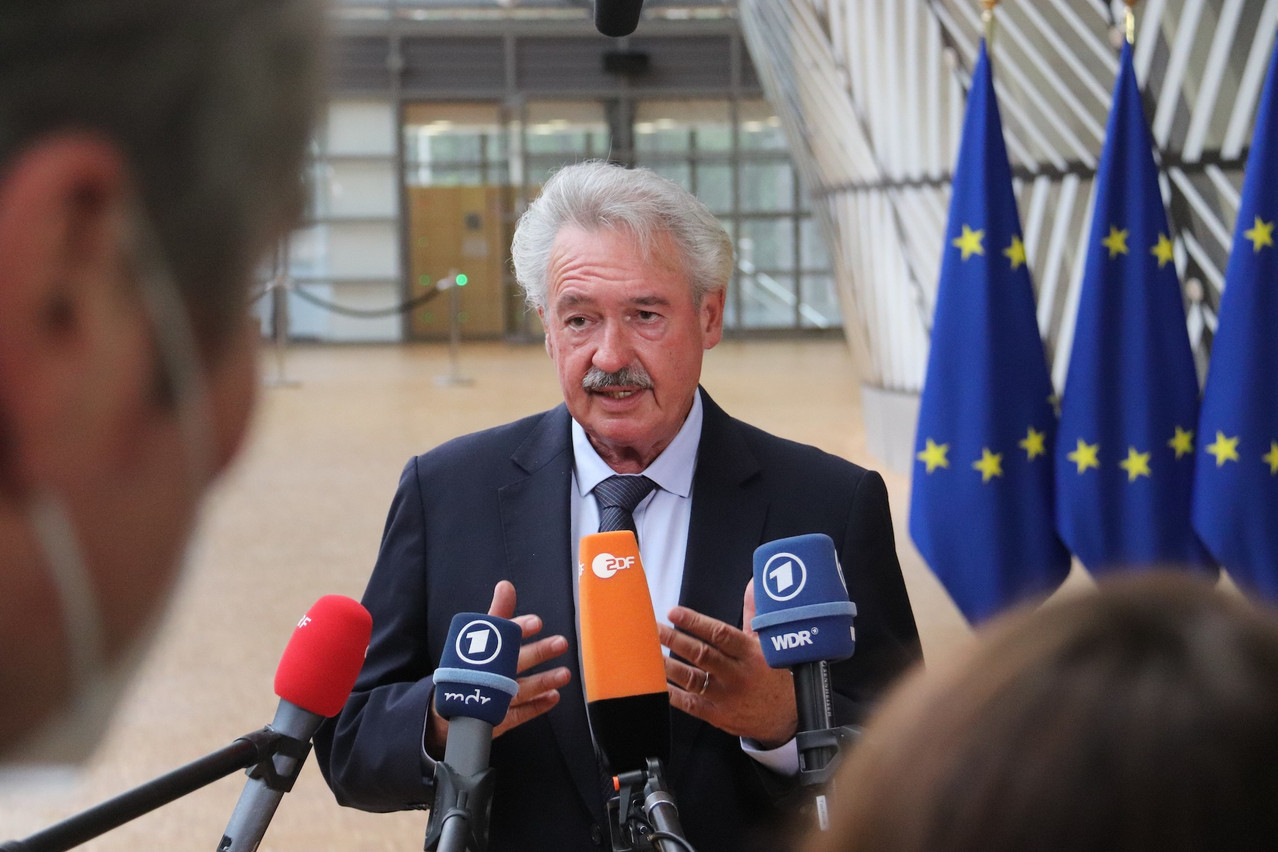EU ministers at an extraordinary summit in Brussels on Tuesday, the day of the final withdrawal of US forces from Afghanistan, pledged to step up financial support for international organisations dealing with the humanitarian crisis as refugees flee the Taliban. But, after what Luxembourg’s foreign ministry called “sometimes tense debates”, they stopped short of any agreement to oblige member states to take in refugees, stating merely that “support could be provided in the form of resettlement on a voluntary basis, prioritising vulnerable persons, such as women and children.”
At the centre of that tension was Luxembourg’s outspoken foreign minister, Jean Asselborn (LSAP), who had earlier criticized Austrian chancellor Sebastien Kurz and Slovenian prime minister Janez Janša--the latter currently leading his country’s presidency of the Council of the European Union. Asselborn had said their attitude to the Afghan refugee situation was “clearly and definitely in line with Orban, Salvini and Le Pen” and hoped there would be “resistance” to that at the meeting. “Sometimes you have to call it as it is,” Asselborn told German broadcaster ZDF after the summit.
Austria’s interior minister Karl Nehammer had reacted by accusing Asselborn of “cheap populism”. Nehammer said that if Asselborn was serious, then Luxembourg would have to take in six times as many Afghans as it currently has to match Austria’s position as the second largest per capita Afghan community in the EU.
If Canada, the United Kingdom or the United States make firm commitments, Europe cannot remain divided. We have a moral obligation to help those who value our values; we cannot abandon them.”
Asselborn had originally proposed that the EU should take in anywhere between 40,000 and 50,000 Afghans through a resettlement initiative. “If Canada, the United Kingdom or the United States make firm commitments, Europe cannot remain divided. We have a moral obligation to help those who value our values; we cannot abandon them,” reiterated in his speech in Brussels.
Asselborn said the EU’s action in the region must pursue a primary objective, “which is to ensure that Afghans at risk, and in particular the most vulnerable, can leave Afghanistan to save their lives.” This includes the EU pledge to provide support for neighbouring countries, using the lever of UN agencies on the ground, so that they maintain open borders and “ensure a dignified welcome for Afghans seeking refuge”, especially in Pakistan.
But the spectre of a resurgence of far-right populism following the 2015 refugee crisis hung large over the meeting. “Based on lessons learned, the EU and its member states stand determined to act jointly to prevent the recurrence of uncontrolled large-scale illegal migration movements faced in the past,” the EU statement read. “Incentives to illegal migration should be avoided.”
Asselborn did win on one point though, with an agreement to his proposal to schedule a High Level Resettlement Forum in September to discuss “sustainable solutions to those Afghans who are most vulnerable”. The commission has agreed to finance the resettlement efforts with a budget of €300 million for 2021-2022.
